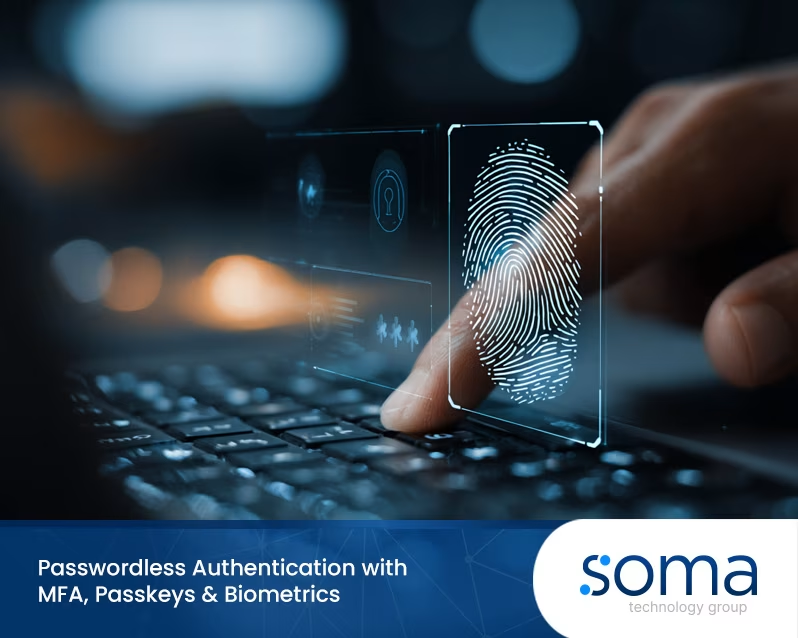
Mastering Confidentiality in Cybersecurity: Essential Strategies and Threats
Have you ever considered what keeps the most innovative businesses secure and successful? It’s not just luck—it’s robust cyber security practices.
According to Cybersecurity Ventures, cybercrime damages are expected to hit $10.5 trillion annually by 2025. Safeguarding sensitive information has become more than a necessity—it’s a strategic advantage. By prioritising confidentiality in cybersecurity, businesses protect their operations and build trust and reliability, turning potential vulnerabilities into strengths.
Understanding data confidentiality in cybersecurity
Data confidentiality has emerged as a cornerstone of cybersecurity. It's not just about protecting data from unauthorised access but also about preserving trust between clients and stakeholders, complying with legal standards, and safeguarding businesses' reputations. This section explores why data confidentiality is crucial in cybersecurity and how it impacts various aspects of business operations.
Why is data confidentiality critical in cybersecurity?
Confidentiality in cybersecurity ensures that sensitive information such as personal details, financial data, and intellectual property is accessible only to authorised individuals. This crucial safeguard helps prevent identity theft, financial fraud, and the leakage of proprietary information, which could lead to severe competitive disadvantage and legal repercussions.
In industries like healthcare and finance, where data privacy is paramount, breaches of confidentiality can result in substantial fines and loss of customer trust, emphasising the need for stringent confidentiality measures in cyber security practices.
Legal and regulatory implications of data confidentiality
Adhering to data confidentiality isn't just about ethical business practices; it's also about legal compliance. Various regulations such as GDPR in the EU, HIPAA in the United States, and other data protection laws globally mandate strict handling and protection of personal information.
Organisations must ensure robust security measures, including effective vulnerability management, are in place to protect data confidentiality. This proactive approach helps prevent breaches and avoid legal penalties and sanctions, safeguarding the organisation and its stakeholders from potential harm.

Key strategies to enhance confidentiality in your cybersecurity efforts
According to StationX, businesses must protect data from unauthorised access, ensure it remains unaltered, and keep it readily accessible to maintain robust cybersecurity. To bolster confidentiality in your cybersecurity framework, consider implementing the following strategic measures:
1. Employ strong encryption
Encrypt data at rest and in transit to ensure it remains inaccessible to unauthorised users even if intercepted. Use strong encryption standards such as AES (Advanced Encryption Standard) to secure sensitive data effectively.
2. Implement access controls
Limit data access to only those individuals who require it to perform their job functions. Use role-based access control (RBAC) systems and the principle of least privilege to minimise exposure of sensitive information.
3. Regular security audits
Conduct regular security audits and vulnerability assessments to identify and mitigate potential weaknesses in your cybersecurity infrastructure. Addressing vulnerabilities before they can be exploited reinforces data confidentiality and ensures business continuity by minimising the risk of disruptions. Regular audits are crucial in maintaining a resilient security posture that supports ongoing operations without compromising sensitive information.
4. Use multi-factor authentication (MFA)
Multiple verification forms are required to enhance security measures for accessing sensitive data. This could include something the user knows (password), something the user has (security token), and something the user is (biometric verification).
5. Data masking and tokenisation
Protect sensitive data by obscuring it through data masking techniques or replacing it with non-sensitive equivalents (tokenisation) where full functionality is unnecessary in your confidentiality in cybersecurity efforts. This strategy reduces the risk of data exposure in environments that may be compromised, ensuring that your cybersecurity measures effectively shield vital information from unauthorised access.
6. Develop comprehensive policies
Establish and enforce robust data security policies that clearly define how to handle, share, and store sensitive data. Ensure these policies cover all aspects of data confidentiality and are communicated effectively across the organisation.
7. Educate employees
Provide regular training and updates on cybersecurity best practices and the importance of data confidentiality. Employee awareness is critical, as human error or negligence can often lead to data breaches.

Common threats to data confidentiality and how to mitigate them
Various security risks continually threaten data confidentiality. Understanding these threats is crucial to developing effective countermeasures that protect sensitive information in the realm of confidentiality in cybersecurity. Below, we explore some common threats to data confidentiality and strategic approaches to mitigate them, ensuring robust protection against unauthorised access and data breaches.
Cyber attacks and data breaches
Cyber attacks and data breaches are among the most significant threats to data confidentiality. These incidents can expose sensitive information, leading to financial loss and damage to reputation. To mitigate these threats, implement strong network security measures such as firewalls, intrusion detection systems, and regular security audits to detect vulnerabilities early.
Additionally, comprehensive incident response plans should be in place to quickly address and contain any breaches.
Insider threats
Insider threats originate from individuals within the organisation who have authorised access to sensitive data but misuse it maliciously or accidentally. Mitigating these risks involves implementing strict access controls and monitoring systems that meticulously track how data is accessed and used within the company.
Conduct regular training sessions to educate employees about the importance of data security and the consequences of data misuse. By emphasising confidentiality in cybersecurity, organisations can better secure their data against such internal threats, ensuring that only authorised personnel handle sensitive information correctly.
Phishing and social engineering attacks
Phishing and other social engineering attacks deceive individuals into divulging confidential information. These schemes often exploit human vulnerabilities rather than technical flaws. Organisations should invest in comprehensive security awareness training to combat these threats that teach employees how to recognise and respond to phishing attempts.
Implementing advanced email filtering solutions can also reduce the incidence of phishing emails reaching end users.

Strengthening your cyber defences with soma
At soma technology group, we specialise in tailoring cyberssecurity solutions to meet your business's unique needs, ensuring robust protection across all dimensions of the CIA triad. Our team of experts employs cutting-edge technologies and best practices to enhance your data confidentiality, maintain integrity, and guarantee availability.
With ongoing support and regular updates to security protocols, we retain strong cyber defences against potential threats, bolstering trust and confidence in your operational security. By focusing on confidentiality in cybersecurity, soma helps secure your business data against evolving cyber threats, safeguarding your vital information assets.

Final thoughts
Cybersecurity is more than just protection; it's a strategic investment in your business's resilience and reputation. With soma, you benefit from top-tier expertise and cutting-edge solutions focused on confidentiality in cybersecurity, ensuring your sensitive data is well-protected.
Contact us today to strengthen your defences and revolutionise your cybersecurity strategy. We can secure your business's future and guarantee its ongoing success.
Frequently asked questions
What is confidentiality in the context of information security?
Confidentiality in information security ensures that only authorised individuals can access data and information. This helps in protecting sensitive information from unauthorised access and breaches.
How does the CIA in cybersecurity relate to confidentiality?
The CIA stands for confidentiality, integrity, and availability in cybersecurity. Confidentiality is a set of measures designed to protect sensitive data from unauthorised access, which is one of the core components of the CIA triad.
What are common threats to data confidentiality?
Common threats to data confidentiality in cybersecurity include hacking, phishing attacks, insider threats, and inadequate data hygiene practices. These vulnerabilities can expose confidential information to unauthorised access and potential breaches, undermining the security of sensitive data.
How can businesses prevent data confidentiality breaches?
Businesses can prevent data confidentiality breaches by implementing robust encryption methods, conducting regular security audits, educating employees on cybersecurity best practices, and enforcing strict access controls.
Why is confidentiality an essential component of the CIA triad?
Confidentiality is crucial because it ensures unauthorised users cannot access sensitive business data and personal information. This is essential for maintaining trust and compliance with regulations.
How does data confidentiality ensure the protection of operational data?
Data confidentiality in cyber security ensures operational data protection by limiting access solely to authorised personnel. This approach significantly reduces the risk of breaches and unauthorised changes, thereby preserving the data's integrity and reliability.
What role does encryption play in maintaining data confidentiality?
Encryption plays a vital role in maintaining data confidentiality. It encodes data so that only authorised users with the correct decryption key can access it, adding an extra layer of security to sensitive information.
How do confidentiality breaches impact business operations?
Confidentiality breaches can lead to significant financial losses, legal consequences, and damage to an organisation's reputation. They undermine trust and can result in the loss of critical business data and customer information.
What are some examples of data that must remain confidential?
Personal identification information (PII), financial records, medical records, trade secrets, and other proprietary business data must remain confidential.
How do information security policies guide data confidentiality protection?
Information security policies play a crucial role in maintaining confidentiality incybersecurity by setting rules and procedures for managing and accessing sensitive data. These guidelines ensure that privacy is upheld throughout the data's lifecycle, protecting it from unauthorised access and breaches.
.svg)
%20(1).webp)


